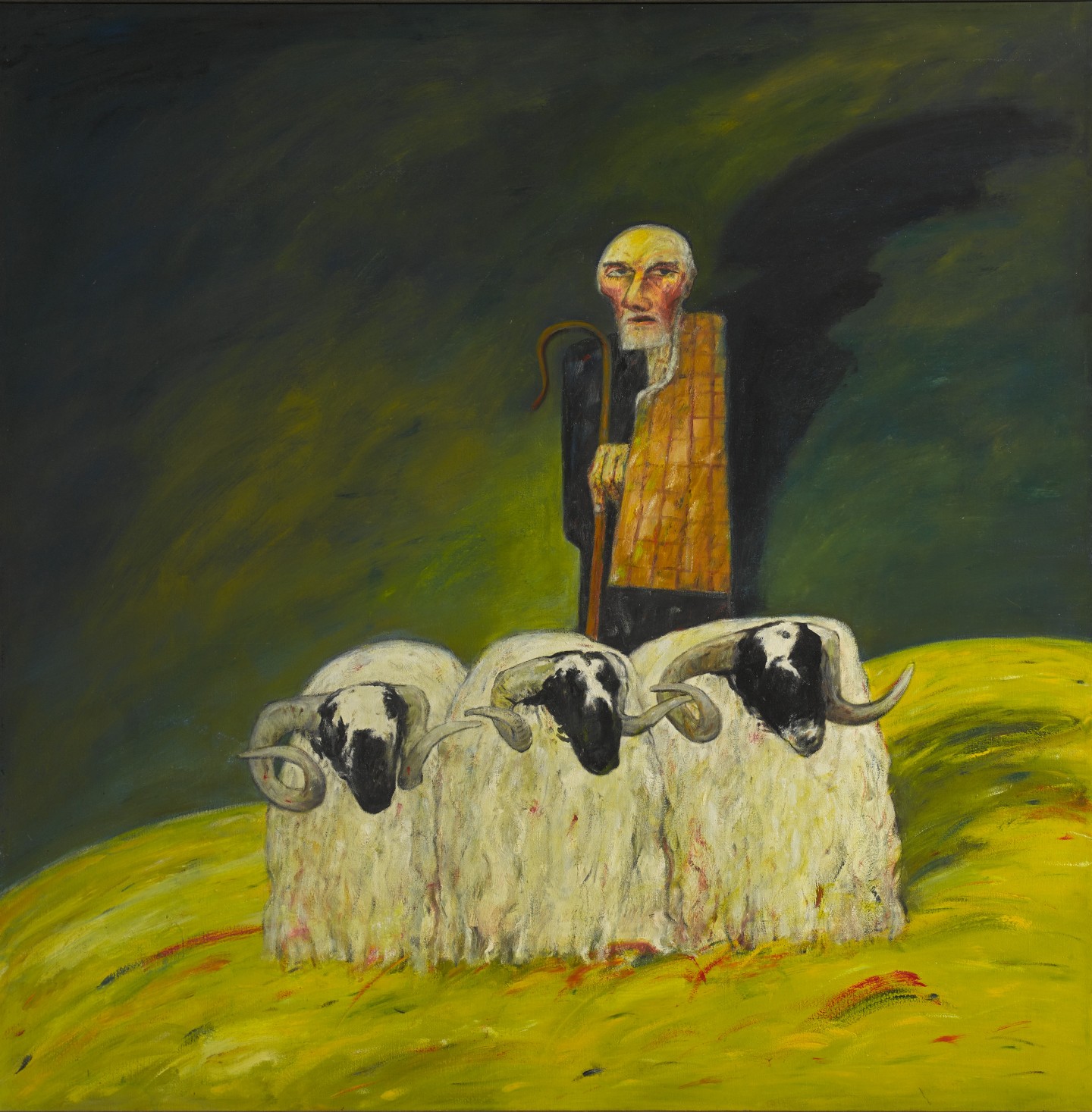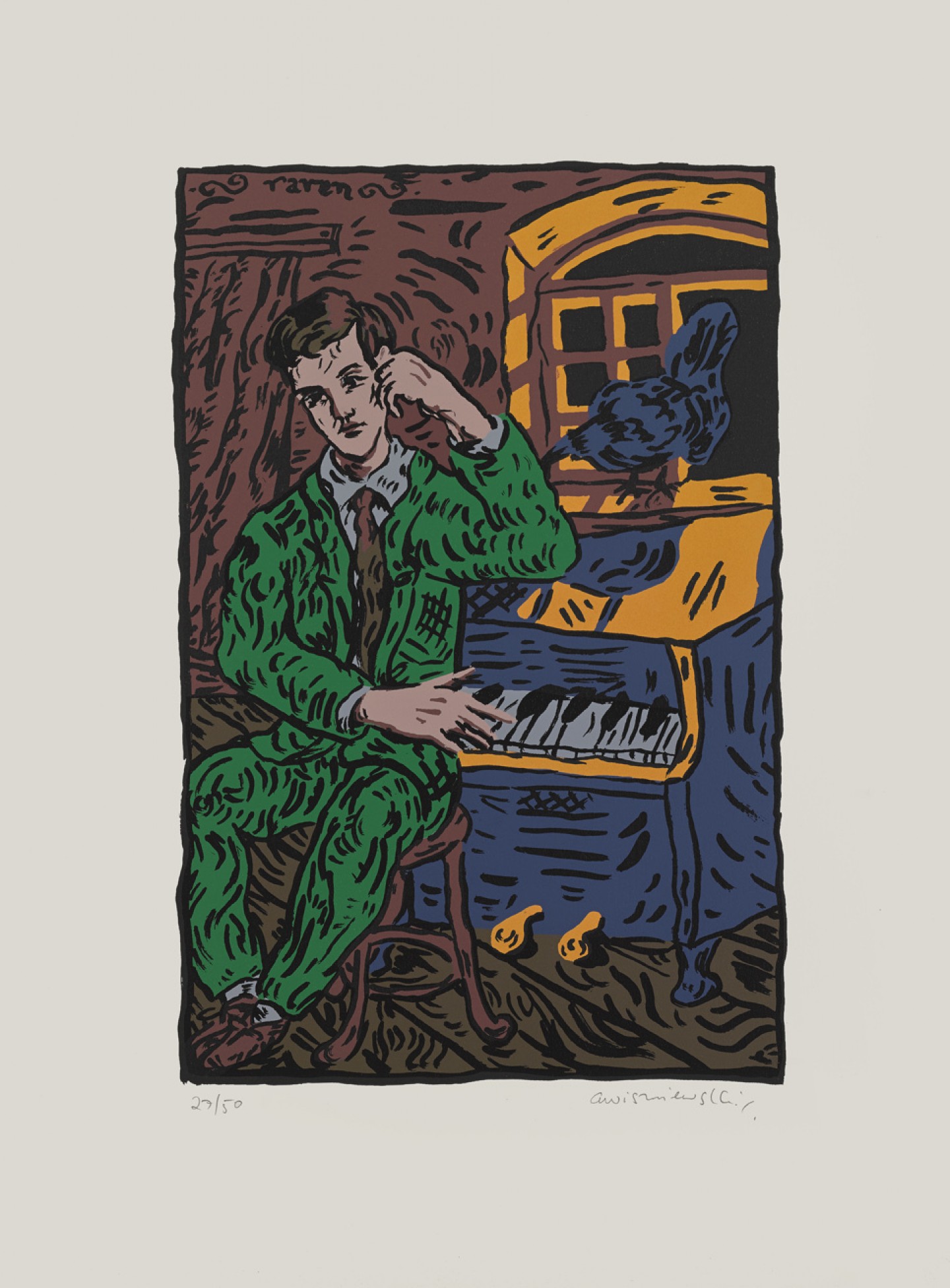DESCRIPTION
Born in Port Seton, near Edinburgh, Bellany came from a family of fisherfolk, and the life and symbols of the fishing community are powerful elements in his early painting, as can be seen in The Herring Fishers. He painted a series of works containing images that recall the paintings of Millet and Courbet in which he successfully uses the Christian symbolism of fish and fishermen to suggest broader themes.
DETAILS
-
Artist
John Bellany
-
Date
1964
-
Medium
Oil on board
-
Object number
57
-
Dimensions unframed
181 × 242 cm
-
Dimensions framed
186 × 248 × 3 cm
-
Marks
Signed bottom left; signed and dated verso
-
Copyright
Ⓒ The Artist's Estate. All Rights Reserved 2019/Bridgeman Images
ARTIST PROFILE
John Bellany RA HRSA, 1942-2013
Bellany trained at Edinburgh College of Art under Robin Philipson from 1960 to 1965. Awarded travelling scholarships, he visited Paris in 1962 and The Netherlands and Belgium in 1965. However, he turned away from the Edinburgh tradition of belle peinture, feeling that subject-matter should be of more consequence than the fashionable landscapes and still lifes of the Edinburgh School - it should address the human condition. He decided to go to London, enrolling at the Royal College of Art, where he studied under Carel Wright and Peter de Francia.
Bellany long admired the Old Masters, including such North European artists such as Bosch, Bruegel and Steen. In London he 'discovered' Max Beckman and Picasso. In 1967 he travelled to East Germany on an official cultural mission, and a visit to the site of Buchenwald concentration camp made a deep impression on him. By 1970 his painting had shifted from the representation of the fishing community to an intense self-analysis, concerned with such issues as life, death, sexuality and guilt. Bellany's work of the early 1980s is more overtly biographical than previously, as well as wilder and more aggressive, approaching abstraction. By 1984 his health was deteriorating, and in 1988 he underwent a life-saving liver transplant. With the aid of a mirror he produced a remarkable series of watercolour studies of himself, starting almost from the moment of his emergence from the anaesthetic.








